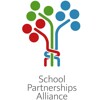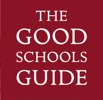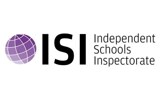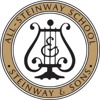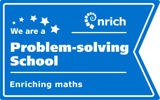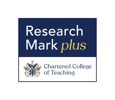- Home
- News and Events
- Teaching and Learning Blogs
- The Importance of Project-Based Learning
The Importance of Project-Based Learning

As any performer will tell you, doing things again and again helps us along the path to mastery, whether that’s on a stage or in the sporting arena. As teachers, we have the chance to try different ways to teach ideas, honing our craft and refining our materials each year, but do we give pupils the same opportunity to improve by iteration?
Some subjects and many co-curricular activities certainly emphasise and value repetition, but with the urgency to move on to cover more content, our focus sometimes drifts from the broader value of education – of helping students develop into confident, capable, thoughtful adults with the skills to flourish. For example, most homework tasks I set give my students only one chance to get it right before the material appears in a test!
A place for project-based learning
Project-Based Learning vs Traditional Learning
Refreshingly, current debates about the post-16 educational model in England are starting to recognise the role of taking the time to use project-based learning, in particular the Level 3 Extended Project Qualification, not only in broadening our students’ academic curricula but also training them with the essential ‘future skills’ they need. Predictably, I’m an evangelist for the Extended Project Qualification (EPQ), particularly as its flexibility means it is accessible to all learners – students choose from four different routes: a traditional dissertation, a scientific investigation, giving a performance, or creating an artefact. All four routes are based on an initial research phase, which must be referenced carefully.
Elsewhere at St Albans School, project work is common in the Lower School – perhaps when there is less pressure on curriculum time. Lower School students of Classics complete two projects on the Vesuvius eruption and Odysseus’ diary; students in the First Form choose between Science projects on seawater, pendulums or evolutionary adaptation, and then machines, natural selection or recycling in the Second Form. All RPE classes research Islam in First Form and some work on social justice projects in the Third Form.
Art, Drama and DT students of all ages use a project-based approach extensively. Upper Sixth economists prepare case studies, while MFL students create and present posters to others at GCSE and discuss their independent research project (IRP) in A Level speaking exams. The History department has enthusiastically embraced project work with African Kingdoms (2nd), the Cold War (3rd) and Upper Sixth preparatory work at the end of Year 12. Politics students research and present to their peers via PowerPoint at three points in Year 12 and two in Year 13. Non-Examined Assessment (NEA) coursework is also a core component of Art, Computer Science, Design Technology, Drama, HPQ/EPQ, English, History, Music and PE.
Clearly, project work is happening in many areas across the School - but could we (or should we) embed this across all Key Stages and faculties?
The case for project work
Projects allow students to develop skills in structuring, referencing, project management, analysis and evaluation. The journey through a longer project, such as the EPQ (or its GCSE little sister, the HPQ), promotes independent learning, time management and problem-solving – skills that are particularly valuable in preparation for university and working life, as shown by the recent Future of Jobs Report. The process also enables students to develop interest, enthusiasm and expertise in an area beyond the scope of their A Level courses and is largely coached rather than taught, which prepares them for their university courses.
Core Skills in 2025, from the 'Future of Jobs Report' by the World Economic Forum
What does the research tell us?
Increasingly, universities are recognising these skills explicitly via lower UCAS offers to students pursuing an EPQ, which has made persisting and completing the Project more worthwhile for our more pragmatic students. But aside from its currency value, students taking EPQ achieved measurably higher average A Level results in one study using a multilevel regression model, while increasing the percentage of students taking EPQ at a school level also showed a small positive effect on results[1]. The benefits seem to also carry forward to university life, where higher proportions of students with an EPQ were awarded first class and 2:1 degrees at the University of Southampton compared to those without an EPQ[2].
One explanation was that EPQ helped students to become more self-confident and resilient; the project-based approach was seen to promote self-regulated learning[3] and the need to be self-sufficient was likely to be beneficial.
Using project-based learning in your classes
Converting our teaching to a project-based approach can be effortful, requiring careful replanning of resources and timescales, so it’s natural for us to be reluctant to innovate away from what works well. Our experience with project work in the Third Form, HPQ and EPQ has shown that some stages are more straightforward, while other steps can be common hurdles to progress.
The initial choice of title can be difficult, so think about offering a range of well-worded titles and asking students to choose the most appealing. This has the additional benefit of generating a more engaging range of themes to review; students can also take centre stage and present to the rest of the class in subsequent lessons, building their oracy skills.
Younger students often struggle to develop projects that require their original analysis and evaluation, which are higher-order skills. Students who do attempt a commentary on the material sometimes just copy the opinions of others. For these students and in more fact-based subjects, it might be safer to limit their projects to the research and summary phases.
For students choosing their own essay titles and ready to attempt thoughtful analysis, remember three golden rules:
-
Exciting as emerging technology is (and as scary the prospect of global chaos!), projects that try to predict the future rarely deliver a decent analysis, since they rely on repeating the guesswork of others. Any title with the word ‘will’ or starting ‘what is the future of’ should be treated with caution.
-
Projects should be focused if they are to be achievable within the timeframe, so avoid ambitious titles about legal or social issues globally, for example. Instead, encourage students to limit their search by period, country, social group, etc.
-
Good essay titles should inspire a discursive answer, going beyond description or summary of the facts. Any title starting ‘what is’ or ‘how’ risks focusing on the detail, without providing room for the student to evaluate, compare and contrast information and weigh up alternative viewpoints. I encourage students to be bold in their statement and to imagine their title used in a debate: ‘This House believes…’ Sometimes the key to accessing a largely factual topic is to ask, ‘What is the most important factor…?’
With creative subjects, students must not fixate on the product or the performance and must build in enough time to develop skills of project management, time management and research. Good questions take the form ‘Can I create a…?’ or ‘Can I perform a…?’ with detail about the effect, intended audience, client, or outcome.
Summer 2025 is a typical year in its breadth of EPQ titles. Here is a selection:• Can I write a song with a powerful impact about political issues regarding inequality towards African Americans in the USA between 50s-60s? (Artefact)• Is the colonisation of Mars necessary for human advancements and feasible with our current technology? (Dissertation)• Can I create and present a lecture titled ‘Infinity, choice, paradoxes: is maths lying to you?’ (Performance)• Were Gorbachev's policies in the Soviet Union the main factor responsible for the fall of the Berlin Wall? (Dissertation)• What non-emergency foreign aid, if any, should be sent to low-income countries? (Dissertation)• Was Elizabeth I’s power limited through being a female monarch in the 16th century? (Dissertation)• Can I design an original, electric plane capable of performing short flights between major cities? (Artefact)
Referencing
Remember to discuss plagiarism, dishonesty and famous cases of malpractice. In the Lower School cutting and pasting internet URLs may be sufficient to signal transparency, and they should learn that a Google or JSTOR link is not appropriate. Older students are encouraged to use a standard format of referencing (Harvard is the most common), which includes the date accessed if it is an online source, since these may be modified over time.
An iterative approach
I would encourage you to be the ‘guide at the side’ and not the ‘sage on the stage’
To quote the originator of the EPQ, Dr John Taylor, I would encourage you to be the ‘guide at the side’ and not the ‘sage on the stage’, especially with older students. This relationship encourages the students to take ownership of their project work and by the end of the project, they should be the sage experts. Your role is to check in with them periodically, prompting them to reconsider their ideas, alter the structure, and consider other avenues. Each time they return to their work and make changes it will improve.
With enough practice of project work, many students leave St Albans School with highly developed skills of self-evaluation, autonomy, self-regulation and subject knowledge, and ready for the personal and professional challenges that lie ahead. If this blog post has inspired you to mix up your approach to a particular topic, then please email me and we can chat about how to turn your project-based plans into a reality.
[1] Gill, T. (2017). An analysis of the effect of taking the EPQ on performance in other Level 3 qualifications, Research Matters, 23, pp.27-34, https://doi.org/10.17863/CAM.100354
[2] Thompson, E. (2023) “Preparing sixth-form students for the transition into higher education: developing key research skills through the EPQ”, Journal of Learning Development in Higher Education, (29). https://journal.aldinhe.ac.uk/index.php/jldhe/article/view/1086.
[3] Stephenson, C. and Isaacs, T. (2019) ‘The role of the Extended Project Qualification in developing self-regulated learners: exploring students’ and teachers’ experiences’, The Curriculum Journal, 30(4), pp.392-/421. https://doi.org/10.1080/09585176.2019.1646665.




